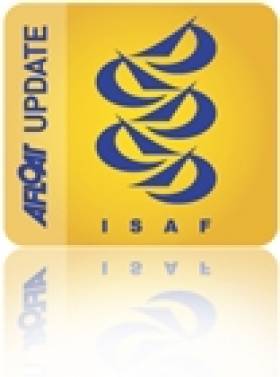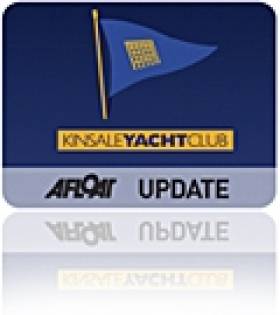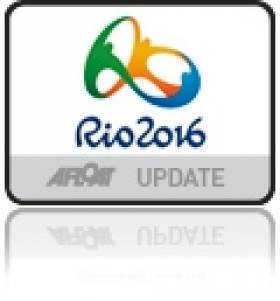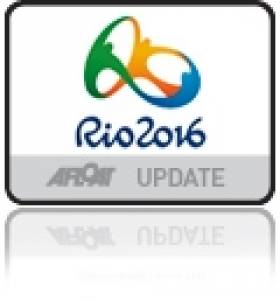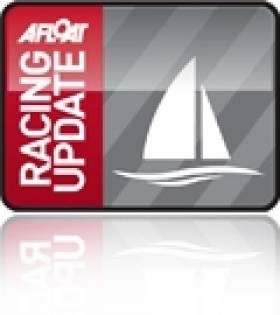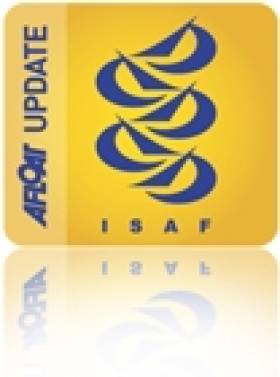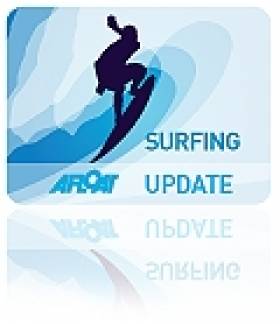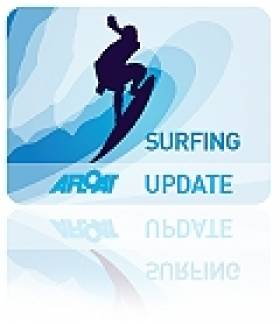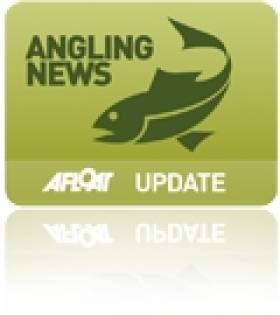Displaying items by tag: Disabled
#sailability – On the 26th June four sailing cruisers from Lough Foyle will set off from Greencastle in Donegal on a round trip passage of Ireland stopping at each Sailability Club around the coastline of Ireland. This is to promote Sailability - sailing for disabled people in Ireland. Sailability Ireland is the new name for the Irish Disabled Sailing Association (IDSA) which was established in 1980 to introduce and encourage people of all ages with disabilities to take up sailing. Thirty years later, Sailability Ireland members are involved in all levels of the sport, from regular club racing, through international championship, to Paralympic Campaigns.
The cruisers will arrive in Dun Laoghaire for the day on Monday 29th June where they will be hosted by the Royal St George Yacht Club and Dun Laoghaire Sailability. D/L Sailability run a very successful programme of courses for disabled children throughout the Summer. 35-40 children are involved in the sailing thanks to the support of the four waterfront clubs, the Royal St. George, the National, the Royal Irish and the DMYC, as well as their instructors and volunteers.
To mark the occasion Sailability sailors from Dun Laoghaire will meet the Lough Foyle Crews for a BBQ at the Royal St. George and then head off in local cruisers at 6pm and accompany the Lough Foyle as far as Dalkey Island or perhaps Killiney Bay as they head towards the next port of call Kinsale.
Sailing for disabled people in Ireland has blossomed over the last few years and there are now centres in all provinces in Ireland. In Dun Laoghaire the programme started 6 years ago and has grown every year to the extent that all of the events this season are full, from the regular Sunday morning sailing to the week courses in June and August .
This year the Royal Irish are hosting the Presidents Cup an all-Ireland competition for disabled sailors with a team from each Province competing in 4 different types of boats. the event will be held in Dun Laoghaire harbour on 22nd and 23rd August
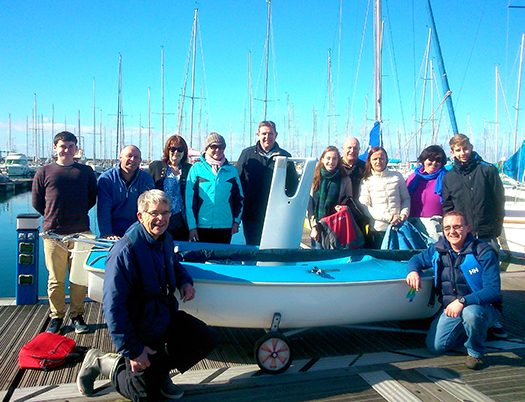
Disabled Sailing Campaign for Tokyo Mounted By ISAF
#disabledsailing – The International Sailing Federation (ISAF) is to campaign for Disabled Sailing's inclusion in the Tokyo 2020 Paralympic Games and has appointed VERO Communications to advise and support its campaign. The decision to press the International Paralympic Committee (IPC) to add Disabled Sailing to the Tokyo 2020 Paralympic Games comes on the back of ISAF formally taking over the management of Disabled Sailing in November 2014, and the integration of the International Association for Disabled Sailing (IFDS) into ISAF.
Carlo Croce, ISAF President said, "Following the merger of IFDS into ISAF at the end of last year, Disabled Sailing is now under new professional management. This is a new era for Disabled Sailing with ISAF now able to fully utilise its technical, financial, promotional and strategic resources to bring significant benefits to Disabled Sailing. For example, we are now working hard to put in place a much enhanced, professional and aligned four year competition programme for Disabled Sailing, as well as generate greater media, broadcast and promotional opportunities for the sport following integration into ISAF's wider communications planning and activities.
"These are all new developments since the merger of IFDS into ISAF and it is important that we now effectively communicate this new era for Disabled Sailing to the IPC. I'm delighted that we have the proven expertise of VERO Communications to support us in this cause. Our focus now is to build the case for Disabled Sailing's inclusion in Tokyo 2020, much of which will be centred around new evidence, as well as stressing some of the unique attributes of Disabled Sailing, including the fact that it is the only sport where athletes with the highest level of disability can compete equally against athletes with other disabilities. I very much hope, upon receipt of this new evidence, that the IPC will look favourably on our case."
Mike Lee OBE, Chairman of VERO added, "VERO is delighted to support ISAF in their campaign to see Disabled Sailing included in the Tokyo 2020 Paralympic Games. The sport has a strong story to tell, especially since it was merged into ISAF at the end of 2014, and we look forward to working with the sailing community to ensure that this new era for Disabled Sailing is effectively communicated."
Kinsale Yacht Club Stages Inaugural President's Cup for Disabled Sailors
#disabledsailing – Munster were the winners of the newest prize in Irish sailing, the President's Cup for disabled sailors at Kinsale Yacht Club in County Cork over the weekend writes Claire Bateman. Ulster were second, Connaught third followed by Leinster who it is hoped will stage the event next year at a Dublin yacht club.
As Afloat previously reported, The Cup has been named in honour of ten times Paralympian, John Twomey who is the current President of the International Sailing Disabled Association. (ISDF)
A team of ten sailors from each of the four Provinces competed in four different classes: the Hansa 303, Skud 18, Squib and Sonar for this brand new trophy.
Saturday's racing in Kinsale Harbour consisted of one race in a north westerly breeze of about five to six knots and, after a short delay when the wind dropped, and the competitors waited hopefully for it to fill in again, it did oblige from the south east and a further two races were held.
The Sonars, Skuds and the Squibs sailed two rounds of a windward/leeward course and all started together. The Hanse 303s sailed just one round of the same course. Over 110 attended the lively dinner on Saturday night. The event was being sponsored by Kingspan.
#ifds – Another fairly windless day in Kinsale yesterday morning with just a light breeze greeting the competitors in the Cork County Council IFDS Championships writes Claire Bateman. However, it was all extremely enjoyable with a lovely convivial atmosphere and most people enjoying their morning coffee while the postponement flag was flying. Suddenly the harsh sound of a hooter alerted all present to the fact the flag had been lowered and one could not believe the speed with which the clubhouse, marina and surrounds that had been packed were suddenly empty and silent.
Competitors needing assistance to get to their boats were speedily surrounded by their helpers and within what seemed like a matter of minutes the fleets were all heading to sea. Also disappearing with the speed of light were the committee boats, the support RIBS, jury RIBS, etc. and the event was on or, was it? To be or not to be, that was the question.
The first attempt at a start was on the Sonar course east of Kinsale. Race Officer Peter Crowley tried a start with a north westerly wind blowing but unfortunately the wind died half the way up the beat and that race had to be abandoned. After a short delay the wind that had been off the land had filled in from the sea with a nice 8/10knot south westerly breeze enabling a start for all three classes and they finished the day with three good races.
The Sonar fleet included Kinsale's own John Twomey, a veteran paralympian, and his crew Anthony Hegarty and Ian Costelloe, and Paul McCarthy and his crew Brian O'Mahony and Paul Ryan. The Sonar fleet also included Amy Kelehan, who previously raced in the SKUD fleet, and her crew Jacqui Browne and Austin O'Carroll.
The start line for the 2.4M s was quite something with all forty two of the lean mean machines like miniature 12 metres making their charge for the line.
On the 2.4mR and SKUD 18 class courses, two races were completed when the wind eventually filled in. In the nine boat SKUD 18 fleet it was a second and a first for Italian Marco Gualandris who is now the leader overnight followed by the London 2012 bronze medalist Alexanda Rickham UK and John McRoberts from RVYC in Canada.
For full results see here.
Disabled World Sailing (IFDS) Starts Today in Kinsale
#IFDS – After months of preparation the IFDS world disabled sailing championships gets underway today in Kinsale, County Cork. Ireland will be represented in the competiton by Kinsale local and world IFDS president John Twomey, a ten time paralympian.
The event will be officially opened on Sunday 25th August at 6pm in the James O'Neill Memorial building in the centre of Kinsale by Mayor of Kinsale Cllr Tony Cierans and Cork MEP Brian Crowley. A parade to Kinsale Yacht Club to present nation's flags will follow the official opening.
There will be a practice race on Sunday 25th August at noon and racing will commence on Monday 26th August with two races scheduled daily starting at 12 noon until Friday 30th August.
The organising committee, led by Regatta Director John Stallard, have been working solidly for over two years to host this major event. Kinsale Yacht Club was redeveloped in the last year without grants and public funding and €800,000 was invested through fundraising by the members and a bank loan that was secured.
#disabledsailing – 13 sailors from Dun Laoghaire, Kinsale and Galway took part in a very closely fought Access Sailing National Championship regatta competition in the specially designed dinghies for disabled sailing in near perfect conditions in Dun Laoghaire harbour at the weekend.
The Royal St George Yacht Club were hosts for the second Access Sailing National Championship Regatta which was held last weekend as a fun competitive event that will hopefully encourage other clubs around the country to get children with disability out on the water.
After 6 races, the overall winner of the Girls Trophy was Georgina Griffin from Kinsale and the Boys Trophy was Oisin Putt on his home waters of Dun Laoghaire.
Kinsale Paralympian Leads World Disabled Sailing Body
#paralympics – Ten time paralympic sailor John Twomey is the new President of the International Association for Disabled Sailing (IFDS).
John was elected at the International Sailing Federation (ISAF) Annual Conference in Dun Laoghaire, Co. Dublin at the weekend. international The honour comes two months after John competed at his 10th Paralympics in Weymouth, a record for any Irish person competing at either the Olympics or Paralympics.
John will serve a four year term as head of the organisation responsible for sailing for people with disabilities worldwide.
Blind Surfers Hit the Waves to Raise Funds for Guide Dogs
#SURFING - Blind surfers from throughout Northern Ireland took to the waves recently to raise money for Guide Dogs NI, as UTV News reports.
The surfers converged on Benone beach in Limavady last weekend for their first-ever sponsored surf, using specially adapted boards - and donning wetsuits against the cold of the Atlantic in this wintry summer.
As previously reported on Afloat.ie, the same stretch of sand hosted Northern Ireland's first ever disabled surfing festival last month.
Like that event, this fundraiser was also supported by the Long Line Surf School, which is specialising in courses for people with various disabilities.
"To get a wetsuit on, jump on a surfboard and trust a surf instructor to be in complete control is something that I would find hugely intimidating myself," said the school's Dan Lavery.
"But we created a relaxed atmosphere for the lesson, just had a laugh and just surfed some waves. It was so rewarding to be able to provide this experience and to be able to meet these amazing people."
UTV News has more on the story, including a photo gallery, HERE.
Disability Is No Barrier at NI Surf Fesitval
#SURFING - Benone Beach in Limavady hosted Northern Ireland's first ever disabled surfing festival last weekend, as the Londonderry Sentinel reports.
More than 30 people with disabilities aged from 8 to 25 came together for the Long Line Disabled Surf Festival on Ireland's longest beach, many trying out surfing for the first time.
Wheelchair users were specially catered for with the use of "innovative" customised surfboards - similar to the kind being designed by the NI kitesurfing rookie highlighted on Afloat.ie last November.
Dan Lavery of the Long Line Surf School, which organised the event, said: "This festival was created to give everyone the experience of surfing.
"We want the child or young person with the disability to take the driver’s seat but we also wanted it to be one of those rare events where the whole family is allowed as parents, guardians and siblings jumped in the water as well.”
The Sentinel has more on the story HERE.
National Disabled Angling Centre to Stay Open Pending Review
#ANGLING - The National Disabled Angling Facility at Aughrim in Co Wicklow is to remain open following an 11th-hour agreement last month, The Irish Times reports.
A deal reached between Fás, Siptu and the centre's staff will retain all 23 jobs with a 25% pay cut and see the premises stay open until a "review" is published in March.
Opened by then President Mary Robinson in 1996, the facility is operated as a Community Employment Fás scheme and has been an invaluable amenity for disabled anglers nationwide.



























